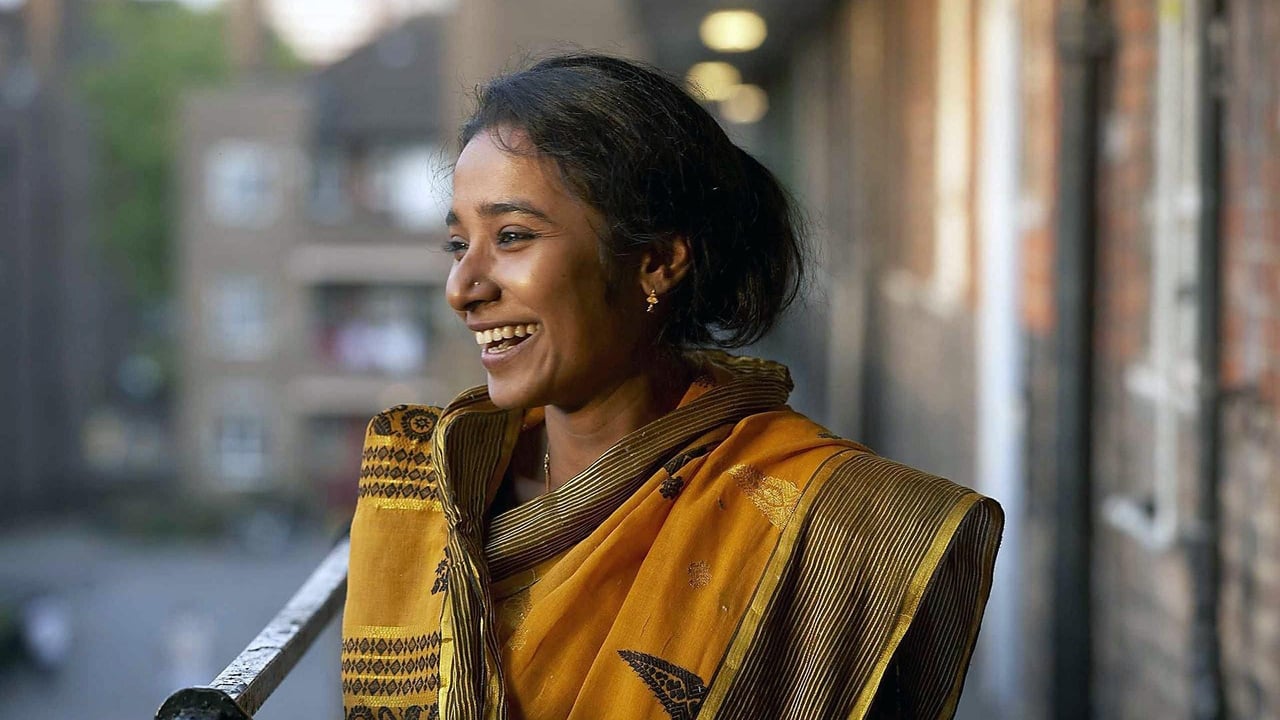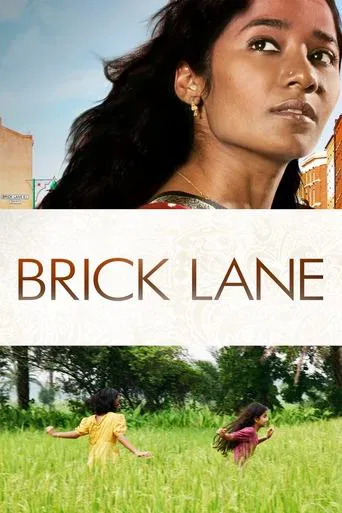

Plot so thin, it passes unnoticed.
... View MoreAmazing worth wacthing. So good. Biased but well made with many good points.
... View MoreThere are moments that feel comical, some horrific, and some downright inspiring but the tonal shifts hardly matter as the end results come to a film that's perfect for this time.
... View MoreGreat movie. Not sure what people expected but I found it highly entertaining.
... View MoreThere are some books that should not be made into movies, and this is one of them. These are the books where there is very little physical action, but a lot is going on within a person's thoughts, what they feel, etc. That being said, it has been years since I read Brick Lane, but I do remember that I liked the book very much and I somehow recall that more went on in the book. Probably because we really got to know the main character. Her thoughts and feelings. But mostly how it felt to be taken away at such a young age, married off to someone she did not know, that who she was being married to was someone older than her own father, and that she had leave everything she had known to move to a new country and a new way of life. The movie did convey the basic premise of how, for a woman from this culture, one's life does not offer much. It is the same thing, day in and day out, and for the rest of her life. How depressing is that? She does find some solace, which of course causes a lot of guilt and anguish, but the movie does not dwell too long on that aspect. Much of the movie has very little physical action going on, and not much dialogue either, yet the actress who portrayed the main character managed to convey how unhappy she was with her life and how she did want to change it. Read the book instead.
... View MoreThere's some good acting, the council estates near the street of the title are well-used and the natural tensions of life in the East End of London in the noughties are used sparingly. As a backdrop to a modern romance it's got perfectly good credentials. Yet I thought Sarah Gavron worked it all too hard trying to hammer out texture and depth as if on an anvil rather than in an editing suite. Mixed-focus and dreamy close-up shots are overused into which is inserted all manner of magic-realist daydreaming whose purpose is unclear. The story is affecting enough and should have been left - perhaps with the lovely, straightforward Bangladeshi flashbacks - to sell itself.Tannishtha Chatterjee is lovely as Nazneen, not overdoing self-pity at her lot and pacing her blossoming as romance beckons. Satish Kaushik is excellent as her husband, funny but capable of the wounded pride which locks Nazneen out. Christopher Simpson is a convincing, if generic lover. When the camera is employed to get all moody it captures the East End honestly and the costuming is predictably colourful. 4/10
... View MoreI didn't really know what to expect with this film, and to be honest I am a little surprised I stuck with it all the way through. Basically young Bangladeshi Nazneen (Tannishtha Chatterjee) has come to 1980's London, England, leaving behind her sister and home, for an arranged marriage and new life with Chanu Ahmed (Satish Kaushik). Trapped in her house on Brick Lane (hence the title) and in a loveless marriage, Nazneen only finds comfort writing about her life to her sister, and knitting or something. She has a tiny fling with young hothead Karim (Christopher Simpson), and there are many flashbacks showing Nazneen's childhood back in Bangladesh. That's really all can remember and all I could be bothered to take in. Also starring Harvey Virdi as Razia, Lalita Ahmed as Mrs. Islam, Naeema Begum as Shahana Ahmed, Lana Rahman as Bibi Ahmed and Zafreen as Hasina. Even though I didn't pay full attention to everything going on, I suppose it is good for the performances, and for the debuting director. It was nominated the BAFTA for the Carl Foreman Award for the Most Promising Newcomer for director Sarah Gavron. Worth watching, in my opinion!
... View MoreA story simply told, often told, can be an affirmation of our shared humanity. And so it is with Brick Lane, about a Muslim immigrant woman, Nazneen (Tannishtha Chatteriee), coming to East London in the early 1980's. Her repression as a housewife is the stuff of cultural cliché and also occasionally boring as we endure her silence in the face of a narrow minded businessman husband.A beautiful but cloistered young wife may stray if her husband is loutish enough, and Nazeen's qualifies (Salish Kaushik). The rewarding part of the film comes with how the devout Nazeen deals with her sin and how the writers (Abi Morgan, Laura Jones) deliver a credible denouement. That ending is a bit of a twist but satisfactory.Cinematographer Robbie Ryan has successful color and composition, almost too beautiful for the side of London I go to when I need slice-o-life experience. Credit or blame is awarded to young helmer Sarah Gavron for the painterly shots. Kitchen sink this is not, nor does it have the gritty insights and colorful characters of a Mike Leigh film such as Secrets and Lies. But it does put you in touch with the challenges of a beautiful woman in a culture where men are all that count.In the future, more films will deal with the emergence of talented women overcoming the restrictions their cultures and religions have placed on them. If the films are as honest as Brick Lane, progress will tear down the brick wall of prejudice but not without doubts and not without a nod to the goodness tradition has offered as well. That ambivalence is at the center this subtly ambitious film.
... View More